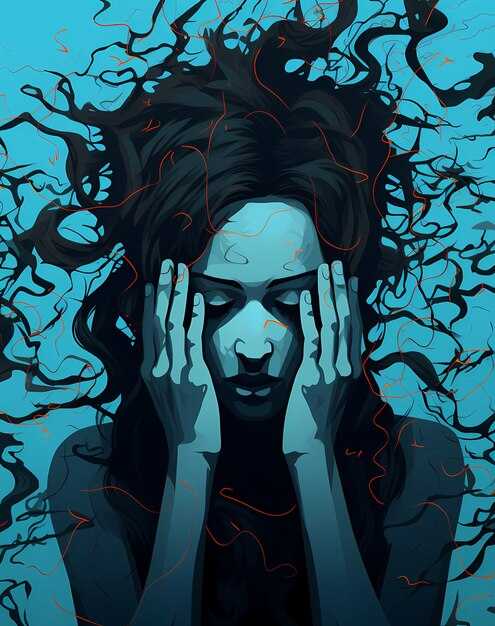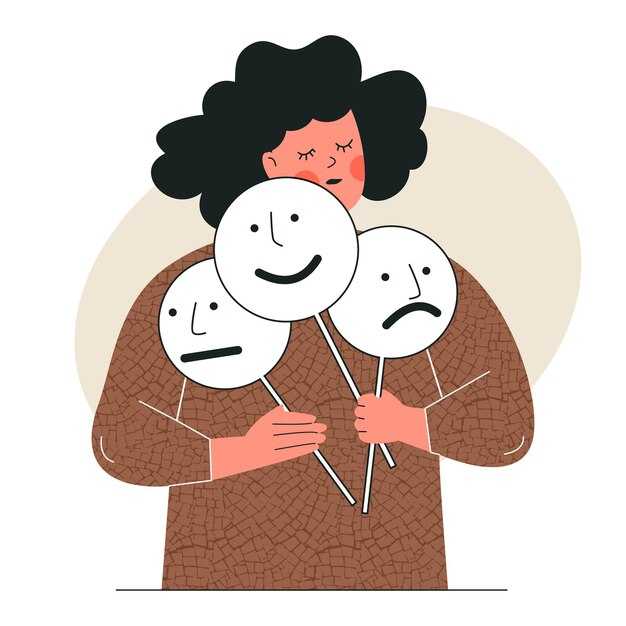There’s a certain mindset people are irresistibly drawn into — you’ve probably noticed it, maybe even found yourself slipping into it at times. We’ve all had moments of it. Hopefully, you’ve learned to avoid it. It masquerades as awareness and even feels empowering when it takes hold, but it’s a counterfeit — a mental narcotic. Indulging in it gives you a rush; you feel something, and feeling something is compelling. It makes you feel powerful, justified, like you understand more than others. But it’s toxic. Here’s how it usually begins: you wake up, grab your phone, and before you’re fully upright you see a headline that ignites fury. Have you done that? I have. I’ve instituted guardrails so I don’t anymore, because the first part of my day is precious for clearing and setting my mind — a daily practice that protects me. Still, the temptation is constant. It’s always within reach — my little device, my baby. You scroll, and suddenly you’re hit with smug derision toward strangers, declarations that everything is ruined, hopeless, and somebody else’s fault. It’s hard to resist.
So you join the chorus: you comment, you repost, you add your tiny droplet of contempt to the ocean of contempt. It’s effortless to stir people’s anger because it feels like energy — an activation. If you’re vulnerable, you’ll post and think you’ve made a difference. But what you’ve really done is played small. You haven’t built, loved, helped, learned, or solved anything. All the meaningful work — creating, healing, changing — requires strength, wisdom, and restraint from that impulse to lash out or jump on the bandwagon. Feeding yourself on a steady diet of fear and scorn hardens your heart toward people you’ve never met and pushes you into a mental bunker where everyone outside your echo chamber is foolish, evil, or both. Meanwhile, your spirit shrinks.
Have you noticed how awful it feels once you realize you’ve fallen down that rabbit hole? It can consume hours, especially if you work from home. That’s why holding back in the morning became so vital for me. I don’t usually think of myself as that susceptible, but sometimes a petty clip — someone flipping another driver off — will lure me in and I hate that version of myself. It isn’t constructive; it doesn’t contribute anything good. If you’ve embraced the mindset where everything is someone else’s fault, you understand how deliciously seductive it is for our dark side: there’s a problem, and surely someone else is to blame. The imagined solution becomes stopping, silencing, or punishing others. You find yourself muttering, “They’re idiots,” or “I can’t stand this country,” and maybe mentally filling in violent or hateful fantasies. That’s harmful to you and to the wider world.
You’re not alone — this is a common shadow of human nature and often almost irresistible. But resisting it is possible if you’re clear you don’t want to indulge and why. While engaged in this mood, people often act out of trauma-driven behavior because it creates an illusion of control and a false superiority when really they feel helpless and afraid. It’s a stand-in for genuine self-worth that comes from meaningful actions. If you want to heal, grow, and become the person you’re meant to be, you have to stop feeding this. Doom mentality grows not only because it’s corrosive, but also because it doesn’t work: it doesn’t bring justice, fix corruption, or change systems. It divides, it doesn’t improve life for those you claim to care about, and it eats you from the inside while separating you from the global human family you belong to. It’s tempting to carve the world into safe and dangerous sections and declare yourself among the “good” people, but being a decent human is a daily struggle that requires honest self-examination.
We are saturated with messages that stoke outrage because outrage gets clicks — and clicks reward whoever benefits from keeping us divided. Don’t let that succeed. Division is not merely an emotion; it’s a force that roots in contempt and the habit of rehearsed outrage until the brain sees enemies everywhere. It’s what happens when curiosity is abandoned and a permanent posture of certainty, suspicion, and blame takes over. Remember, we don’t have all the answers. Before lashing out, the critical step is to do some research and seek other viewpoints. That humility matters.
Here are practical steps. First, avoid living as a perpetual victim. That doesn’t deny that you may have been hurt or abused — this address is for people who experienced childhood neglect or abuse, after all — but there’s a difference between having been victimized and making victimhood your identity. You can’t change what happened to you, but you can stop building your outlook around helplessness and perpetual persecution. Take responsibility for the portion of power you do have — while not everyone has freedom to reshape their circumstances, many of us have some wiggle room, even if small. Stop feeding your wounds with doom narratives that keep you trapped in trauma loops about the past.
Second, if you’re convinced entire groups are inherently evil, hateful, or stupid, you’re the one imprisoned by hatred. This isn’t personal — it’s a message to all of us, because black-and-white thinking is especially seductive when we’re overwhelmed or traumatized. Certainty from someone else can lure us into quick alignment. But if you’re committed to healing trauma and becoming a stronger person, there’s no space for sweeping dehumanization. Be fair-minded. Do your due diligence instead of rushing to join the loudest voice or whatever earns social approval. Otherwise, you’re being dehumanized by your own thoughts.
Trauma, unchecked, causes real damage: it doesn’t love; it knows contempt, and contempt is an easy, powerful feeling. There’s a quick invitation: a free, short daily-practice course that teaches two simple techniques to calm inner storms when you’re triggered. It’s brief and effective, helping you feel clearer, more focused, and at ease quickly. Click the second link in the description below or scan the QR code to begin immediately.
Therapy can sometimes encourage righteous anger, treating contempt as a sign of strength. But mingling with that energy is easy; walking away from it takes work. With healing, it becomes easier to step back from the flare of anger and ask: is this true? Is this necessary? Is this fair? It’s valuable to pause before the quick hit of righteous charge and consider other perspectives. Personally, I deliberately read widely — around 90 minutes a day — and make an effort to take in different viewpoints because I don’t trust any single source to have the whole truth. I piece together what rings true and stay agnostic on many matters because certainty is rarely warranted.
Right now there’s a great deal happening in the world, and people react in many ways: with fear, or with avoidance. There’s calm and freedom that comes from being skeptical of the big bandwagon narratives that insist there’s only one right way to think and that dissenting people are evil. That stance is always suspicious — who benefits from that kind of thinking? It resembles narcissistic either/or reasoning: either you’re with me or you’re against me. Don’t be that person.
This nefarious force is seductive and corrosive; it exists in everyone’s potential and can drive us toward hateful thoughts and actions. Each of us must keep watch over that tendency — become the guardians of your “better angels” and hold to core principles like the Golden Rule. There’s a word I learned recently — calumny — which means intentionally spreading falsehoods to damage someone’s reputation. Historically it was treated as a grave moral failing, yet today it’s so casually done. Some people knowingly lie about others to destroy them, and that’s morally wrong. Sometimes people repeat lies because they didn’t bother to check the facts; that too is harmful. When falsehoods are amplified, they raise anger and can lead to real-world violence. If you trace many historical catastrophes, they start with dehumanizing lies that convince people a whole class must be destroyed. While violence is sometimes inevitable in extreme circumstances, far too many escalations could have been averted by truth, restraint, and honest conversation.
Truth is the medium that allows right action. Lies and smear campaigns are devastating. I experienced that personally: a neighbor once spread outrageous falsehoods that I had killed cats — claims that were baseless and destructive. False accusations of that kind ruin reputations and are hard to dispel. Later, in another chapter of life, people who once trashed a creative project I made told others it was a miserable experience, and that criticism silenced me for years. Creativity and visible healing can threaten people who feel ashamed or lonely, and sometimes that drives them to attack. That’s no excuse for the harm they cause, but it helps explain why such attacks occur. When you recover and begin to shine, it can provoke others’ resentment and prompt attempts to tear you down. That’s why it’s vital to refuse to be the carrier of such destructive forces to the next generation: it kills compassion, understanding, and the chance for constructive change.
If you suspect past trauma affects your life now, there are signs you can check for to see if present struggles are connected to childhood neglect or abuse. Knowing this can normalize your experience and open the door to healing. Download a checklist for childhood PTSD signs by clicking the top link in the description below or using the QR code to access it.
Don’t become a repeater of lies or slander. Even if you encounter something sensational online, you don’t need to share it unless you are completely certain and convinced it’s necessary for others to know. A good person shows restraint and discretion. Be grateful for friends who pause and question sensational claims about someone they know. Discipline is required, because our impulses can have off days and crave a little rush of energy from outrage. That spike feels good initially — especially if you’re depressed and need a lift — but it’s emotional junk food. Sustained rage is spiritually malnourishing. Some people’s social feeds are nothing but one complaint after another about how everything’s falling apart. Does that help solve anything? Even when facing a real problem, spreading venom and exaggeration doesn’t help; it simply alienates those who might have been open to change.
Misery loves company, and outrage breeds communities of outrage where people feed each other’s anger. If you’ve been that person, you know how ugly it feels. I regret the negativity I’ve once broadcast and worry about who it harmed. Rather than making noise, be a contributor: create, volunteer, teach, serve, or run a business. When you speak, speak with clarity and truth, not scorn or smugness. Truth holds power; hate has only heat and volume.
Choose to learn about people who differ from you. Listen and watch assumptions collapse when you truly hear others’ stories. You’ll be humbled and encouraged. One practical thing that’s worked is hosting dinners where people with diverse viewpoints share a meal and a conversation. When you sit down face-to-face, it’s very hard to maintain vilification. People have different stakes and histories; hearing them allows disagreement without dehumanization and opens paths to constructive action. Most people fundamentally want safety, kindness, material stability, and opportunities for their children — basic human aims. Recognizing shared wants can defuse fear and suspicion, even though people can still disappoint you.
Every person is unique, shaped by wounds, pressures, and experiences you may not know about. Dehumanizing others dehumanizes us all. While some individuals are violent and must be restrained, overall we should be bridge-builders and truth-tellers. You don’t burn your own humanity to feel righteous. Think about trying a “content diet,” as Chris Williamson suggests: step away from outrage-filled media for a set period, even three days. Don’t let your mind be cluttered by noise. Instead, read challenging books, listen to thinkers who push you out of your comfort zone, and sit with ideas that stretch you. Renew your mind rather than merely reinforcing it.
You don’t have to accept the doom narrative as your only reality. That bleak frame is often one selected for you because it sells attention and lines people up to help others gain money and power. Keep things human. You don’t have to buy what they’re selling or nurture the hatred they promote. Starve that beast. The world needs clear minds and strong hearts: people who can endure suffering without blaming, love without controlling, and build without dividing. Stop playing small. Don’t let one pole of human identity define you. You are meant for more, and you’re needed in the world right now. This kind of breakdown in connection is a common aftermath of growing up with trauma, but we can work on it, learn, and handle it better.


 Il ne s'agit pas de colère — c'est quelque chose de plus profond (et cela ruine votre vie).">
Il ne s'agit pas de colère — c'est quelque chose de plus profond (et cela ruine votre vie).">

 Do their feelings matter to you?">
Do their feelings matter to you?">
 Still Missing Them? These 5 Healing Steps Will Set You Free from the Avoidant’s Spell | Mel Robbins">
Still Missing Them? These 5 Healing Steps Will Set You Free from the Avoidant’s Spell | Mel Robbins">
 How to Break Free of ENTANGLEMENT With Exes">
How to Break Free of ENTANGLEMENT With Exes">
 The Hidden Pain of ADHD in Women No One Talks About">
The Hidden Pain of ADHD in Women No One Talks About">
 My Marriage DIED because I couldn’t Communicate!">
My Marriage DIED because I couldn’t Communicate!">



 Comment être un MARI EXCELLENT">
Comment être un MARI EXCELLENT">
 Je n'ai pas compris ma femme jusqu'à ce que je fasse ÇA">
Je n'ai pas compris ma femme jusqu'à ce que je fasse ÇA">